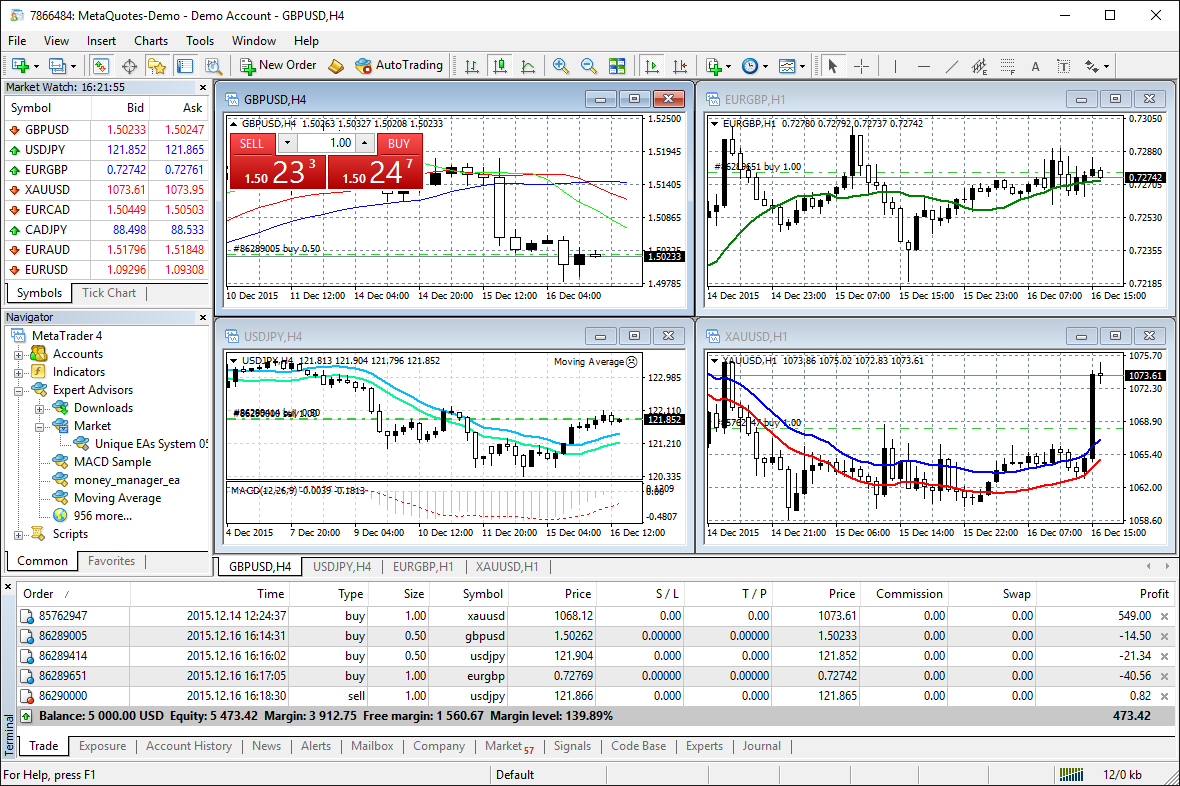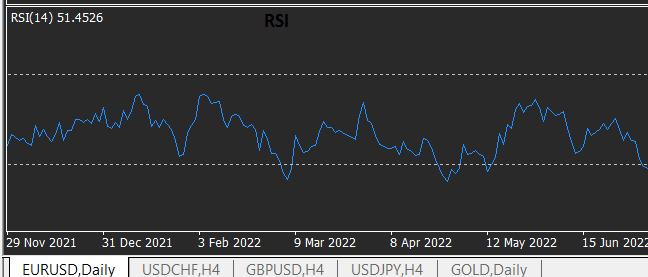Forex Trading Unveiled: 5 Key Facts Every Investor Should Know
Introduction
Forex trading, also known as foreign exchange trading, has gained significant popularity among investors worldwide. This intriguing financial market offers incredible opportunities for those who understand its intricacies. However, navigating the Forex market requires a comprehensive understanding of its fundamental concepts and mechanisms. In this article, we will explore into the key facts that every investor should know about Forex trading.
What is Forex Trading?
Forex trading refers to the simultaneous buying and selling of currencies on the global market. Unlike other financial markets, Forex operates 24 hours a day, five days a week, enabling investors to participate in trading activities at any time. The primary objective of Forex trading is to profit from the fluctuations in exchange rates between currency pairs. These currency pairs are traded on the Forex market, where each currency is assigned a specific three-letter code. For instance, the EUR/USD pair represents the exchange rate between the Euro and the US Dollar.

The Mechanics of Forex Trading
- Understanding currency pairs and their value
Currency pairs are the building blocks of Forex trading. Each pair comprises a base currency and a quote currency. The base currency denotes the currency that an investor wishes to buy or sell, while the quote currency represents the currency used to make the transaction. The exchange rate between the base and quote currency determines the value of the currency pair.
- Exploring bid and ask prices
When engaging in Forex trading, investors encounter bid and ask prices. The bid price refers to the price at which traders are willing to purchase the base currency, while the ask price represents the price at which traders are willing to sell the base currency.
- Introduction to pips and lot sizes
The concept of pips holds significant importance in Forex trading. Pips, short for "percentage in point," are the smallest unit of measurement for currency movements. They represent the change in the fourth decimal place of the exchange rate. Lot size refers to the volume of a trade, either in standard, mini, or micro lots, with each lot containing a designated number of currency units. In the below it showing the calculation of the per pip size:

Factors Influencing Forex Markets
- Economic indicators and their impact on currency exchange rates
Forex markets are influenced by a multitude of factors, including economic indicators, political events, and the decisions made by central banks. Economic indicators, such as gross domestic product (GDP), inflation rates, and employment data, have a substantial impact on currency exchange rates. Positive economic indicators often strengthen a currency, while negative indicators can lead to its depreciation.

- Political events and their effects on Forex
Political events, such as elections, geopolitical tensions, and policy changes, also play a crucial role in Forex trading. These events can cause significant fluctuations in currency values and present both opportunities and risks for investors.
- Role of central banks in shaping Forex trends
Central banks, including the Federal Reserve, European Central Bank, and Bank of Japan, have the power to influence Forex trends through their monetary policies. Decisions on interest rates, quantitative easing, and intervention strategies can have a substantial impact on the value of a currency.
Forex Trading Strategies
- Fundamental analysis:
Successful Forex trading relies on effective strategies that help investors make informed decisions. Fundamental analysis involves evaluating economic data, news releases, and geopolitical events to determine the strength or weakness of currencies. This analysis enables investors to assess the economic conditions of different countries and make trading decisions based on their findings.
- Technical analysis:
On the other hand, technical analysis involves studying historical price charts, utilizing various indicators, and identifying patterns that can predict future market movements. This approach enables investors to analyze trends, support and resistance levels, and momentum indicators to make trading decisions.
- Risk management techniques for Forex trading:
Risk management is a crucial aspect of Forex trading. Investors must employ techniques such as setting stop-loss orders, diversifying their portfolio, and determining an appropriate risk-to-reward ratio to protect their capital and minimize potential losses.
Trading Platforms and Tools
- Forex trading platforms:
Forex traders can access the market through various trading platforms, each offering its own set of features and functionalities. Popular platforms include MetaTrader 4 & 5, cTrader, and NinjaTrader. These platforms provide real-time market data, order execution capabilities, and advanced charting tools to assist investors in making informed trading decisions.

The above image of MetaTrader 4 is one of the most widely used trading platforms in the financial industry.
- Exploring charting tools and indicators:
Charting tools and indicators are essential resources for technical analysis. These tools allow investors to analyze historical price data, identify patterns, and predict future market movements. Some commonly used indicators include moving averages, Fibonacci retracements, and relative strength index (RSI).

The above image is showing the RSI which is used in forex trading
- Utilizing automated trading systems:
Automated trading systems, also known as expert advisors, offer an additional level of convenience for Forex traders. These systems utilize pre-programmed algorithms to execute trades automatically based on specific trading strategies and conditions defined by the trader.
Leveraging Forex Trading Opportunities
- Spot trading and its benefits:
Spot trading is one of the most common forms of Forex trading. In spot trading, currencies are bought and sold for immediate delivery, with settlement typically taking place within two business days.
- Understanding margin trading and leverage:
Margin trading allows investors to trade larger positions than their account balance by borrowing funds from their broker. Leverage is the ratio of the borrowed funds to the trader's own capital. While leverage can amplify potential profits, it also increases the risk of losses. It is essential for traders to understand and manage the risks associated with leverage.
- Exploring the potential risks and rewards of leveraged trading:
Leveraged trading presents both opportunities and risks. It allows investors to control larger positions with a smaller amount of capital, potentially leading to significant profits. However, the same leverage that amplifies gains can also magnify losses, making risk management crucial for Forex traders.
Popular Forex Trading Styles
- Day trading:
Forex trading offers different styles that cater to various trading preferences. Day trading involves executing multiple trades within a single day to capitalize on short-term market movements. Day traders employ strategies such as scalping and range trading, aiming for quick profits.
- Swing trading:
Swing trading, on the other hand, focuses on capturing medium-term trends. Swing traders aim to identify market swings that can last for several days to weeks. This style of trading requires patience and the ability to hold positions for longer durations.
- Carry trading and its profitability:
Carry trading is based on the interest rate differential between two currencies. Traders who engage in carry trading aim to profit from the interest rate disparity by holding positions for a prolonged period. This strategy can potentially yield consistent returns, but it also carries higher risks.
Overview of Major Currency Pairs
- Explanation of major currency pairs:
Major currency pairs are the most commonly traded pairs in the Forex market. These pairs involve major global currencies, such as the US Dollar, Euro, Japanese Yen, British Pound, Swiss Franc, Canadian Dollar, Australian Dollar, and New Zealand Dollar. Some examples of major currency pairs include EUR/USD, GBP/USD, and USD/JPY.
- Analysis of their characteristics and trading opportunities:
Each major currency pair has unique characteristics and trading opportunities. They are often influenced by economic data, central bank policies, and geopolitical events. Understanding the dynamics and specificities of each major currency pair is crucial for successful Forex trading.
Forex Market Hours and Sessions
- Understanding the global Forex market hours:
Forex trading operates 24 hours a day, starting from the opening of the Asian session to the closing of the New York session. The global Forex market is divided into three main trading sessions: Asian, European, and North American.
- Trading during specific market sessions:
Each trading session has its own unique characteristics and trading volume. The Asian session, influenced primarily by the Japanese Yen and other Asian currencies, tends to be less volatile. The European session, with significant trading activity in the Euro and British Pound, is known for its higher volatility. The North American session, dominated by the US Dollar, is influenced by economic releases from the United States.
- Benefits and considerations for trading in different time zones:
Trading during specific market sessions provides opportunities for investors to capitalize on the increased liquidity and volatility associated with each session. However, trading in different time zones also requires careful consideration of factors such as market overlaps, news releases, and personal availability.
Forex Trading Psychology
- The impact of emotions on trading decisions:
Forex trading requires investors to manage their emotions effectively. Emotions such as fear, greed, and impatience can significantly impact trading decisions and lead to irrational behavior.
- Developing a disciplined mindset for successful Forex trading:
It is essential for traders to develop a disciplined mindset and adhere to their trading strategies and risk management rules.
- Overcoming common psychological pitfalls:
Overcoming common psychological pitfalls, such as revenge trading (making impulsive trades to recover losses) and overtrading (excessive trading due to boredom or emotional highs), is crucial for maintaining profitability in Forex trading. Implementing techniques such as meditation, journaling, and maintaining a trading plan can help traders maintain a balanced psychological state.
Risks and Limitations of Forex Trading
- Understanding the inherent risks in Forex trading:
Forex trading carries certain inherent risks that investors must be aware of. The volatile nature of currency markets can result in substantial losses if proper risk management techniques are not implemented. Factors such as leverage, market volatility, economic events, and unforeseen geopolitical events contribute to the risks involved in Forex trading.
- Importance of risk management and setting stop-loss orders:
Risk management is a crucial aspect of Forex trading. Setting stop-loss orders helps limit potential losses by automatically closing a position when a predetermined price level is reached. Traders must also determine their risk tolerance and establish appropriate position sizing and leverage limits.
- Potential limitations and challenges faced by Forex traders:
Forex trading also presents certain limitations and challenges. The high volatility of the market can lead to sudden price movements, making it difficult to execute trades at desired prices. Additionally, liquidity concerns, slippage, and the possibility of technological failures are challenges that traders may encounter.
Regulatory Environment and Legal Considerations
- Overview of regulatory bodies governing Forex trading:
Forex trading is regulated by various authorities around the world to ensure fair and transparent practices. Regulatory bodies such as the Securities and Exchange Commission (SEC) in the United States, the Financial Conduct Authority (FCA) in the United Kingdom, and the Australian Securities and Investments Commission (ASIC) enforce regulations to protect investors.
- Importance of choosing a regulated Forex broker:
Choosing a regulated Forex broker is of utmost importance to ensure the safety of funds and fair trading conditions. Regulated brokers adhere to strict standards and are subject to regular audits, providing investors with a greater level of confidence.
- Key legal considerations for Forex traders:
Forex traders should also be aware of key legal considerations, such as tax obligations, reporting requirements, and compliance with anti-money laundering regulations. Understanding and complying with these legal obligations is essential for maintaining the integrity of Forex trading activities.
Case Studies of Successful Forex Traders
- Examining the strategies and approaches of renowned Forex traders:
Analyzing the experiences of successful Forex traders can provide valuable insights and inspiration for aspiring investors. Case studies of renowned traders like George Soros, Paul Tudor Jones, and Stanley Druckenmiller highlight the importance of discipline, risk management, and adapting to changing market conditions.
- Lessons to learn from their success stories:
These successful traders often develop their unique approaches to Forex trading, incorporating a combination of fundamental and technical analysis, risk management techniques, and psychological resilience. Studying their strategies and learning from their experiences can help investors refine their own trading methodologies.
Forex Trading and Tax Obligations
- Understanding tax implications for Forex traders:
Tax obligations for Forex traders vary depending on the jurisdiction in which they operate. Investors should consult with tax professionals or relevant authorities to ensure compliance with applicable tax laws.
- Reporting requirements and considerations for different jurisdictions:
In some countries, Forex trading profits may be subject to capital gains tax, while in others, they may be categorized as income and subject to different tax rates. Additionally, traders should be aware of reporting requirements, such as filing specific forms or maintaining accurate trading records, to fulfill their tax obligations successfully.
Summary and Key Takeaways
In summary, Forex trading presents unique opportunities for investors worldwide. Understanding the mechanisms, factors, and strategies involved in Forex trading is crucial for success in this dynamic market. Key takeaways include the significance of fundamental and technical analysis, effective risk management, and adherence to regulatory and legal considerations. By continuously educating themselves and applying the lessons learned from seasoned traders, investors can maximize their potential in the Forex market.
FAQs
1. Is Forex trading suitable for beginners?
Forex trading can be suitable for beginners, but it requires thorough education, practice, and a disciplined approach. Beginners should start with ample research, learning the basics of Forex trading, and understand the risks involved.
2. How much capital is needed to start Forex trading?
The capital required to start Forex trading varies depending on individual strategies, risk tolerance, and broker requirements. Some brokers offer low minimum deposit requirements, allowing traders to start with a relatively small amount of capital.
3. Can I trade Forex part-time while maintaining other commitments?
Yes, Forex trading can be done part-time, allowing individuals to maintain other commitments. However, it is essential to allocate sufficient time for market analysis, monitoring trades, and staying updated on relevant news and trends.
4. How can I stay updated on Forex market news and trends?
Traders can stay updated on Forex market news and trends through various sources, such as financial news websites, economic calendars, and dedicated Forex news platforms. Additionally, following reputable analysts and participating in online trading communities can provide valuable insights.
5. What are the benefits of using a Forex demo account?
Forex demo accounts offer several benefits for beginners and experienced traders alike. They provide a risk-free environment to practice trading strategies, familiarize oneself with the trading platform, and gain confidence before trading with real money.











Discussion